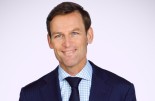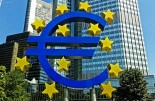Fidelity International: Yields in Europe will remain very well supported
Fidelity International: Yields in Europe will remain very well supported

Andrea Iannelli, Investment Director at Fidelity International, comments on today's ECB-meeting
"The ECB meeting today did not disappoint those looking for a dovish tone, particularly following the recent outcome of the central bank’s Strategy Review.
The forward guidance language was updated to reflect the new, symmetric inflation target. The key for us was the focus on inflation projections and what it would take for the Governing Council to consider tightening policy.
The statement, and then M.me Lagarde in the press conference, stressed that monetary policy will remain very accommodative "until inflation has reached 2% well ahead of the end of its forecast horizon and durably for the rest of the horizon".
We interpret this as very dovish, considering that, for inflation in Europe to reach 2% before the end of projection horizon and durably staying there, it would need 2-3yrs of inflation at 2% before the ECB can justify a tighter monetary policy stance.
This is a very tall order, given the still very poor inflation dynamics in the Eurozone, where HICP inflation has consistently been below the 2% threshold, and consistently undershot the ECB’s forecasts for many years.
The main implication of the ECB new forward guidance and inflation framework is that, while the ECB may have retained flexibility and optionality, interest rates are unlikely to move higher for many many years to come. Any chance of rate hikes that had been priced in by the market over the next several years due to the rise in inflation that we have seen year to date will have to now be priced out.
The secondary implication is on the ECB’s QE programme. M.me Lagarde intentionally didn’t spend too much time on the PEPP and on the other tools that the ECB has at its disposal. However, we can infer that the PEPP will continue to run until maturity, and at a higher pace as highlighted in the statement. Moreover, with inflation expected to fall in 2022, we believe the ECB will make full use of both the PEPP facility and, when this comes to an end in March 2022, upsize significantly the APP programme to keep yields low, and financing conditions loose.
In a world where other central banks are considering how and when to reduce stimulus, the ECB stands out as the one central bank that is likely to remain most accommodative. Against this backdrop, we believe yields in Europe will remain very well supported, thanks to central bank purchases and a growing stock of savings in Europe looking for income. Core European duration should continue to perform well in this environment, as should peripheral government bonds."








